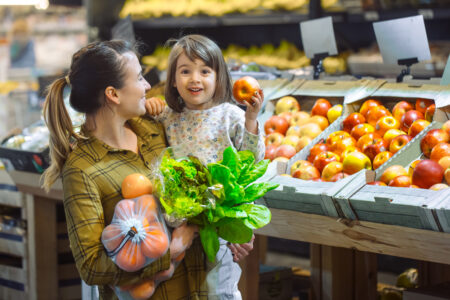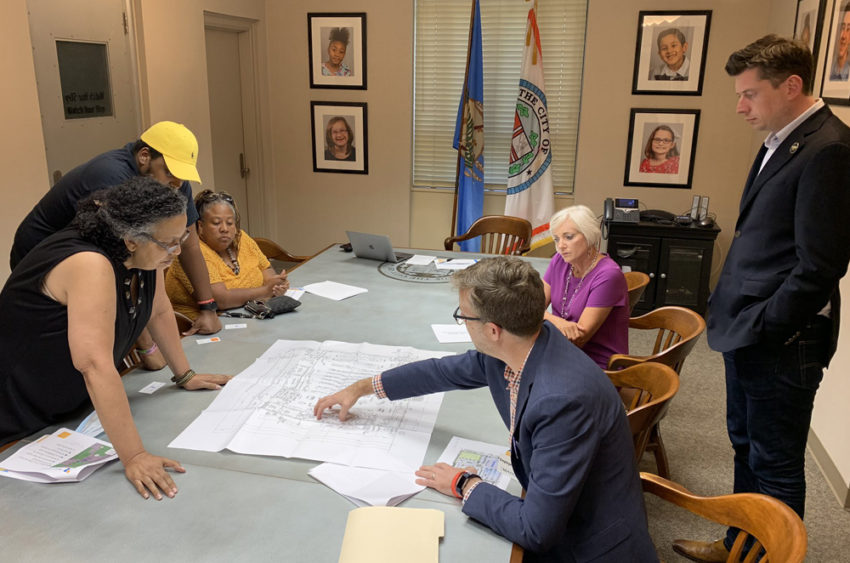
Share On Social!
In a move that shows how social movements can address local health, Black Lives Matter advocates are helping push for a grocery store in a food desert in Oklahoma City (14.6% Black, 19.2% Latino).
The advocates brought a demand for a store to city leaders.
They met with Oklahoma City Mayor David Holt, Homeland grocery store President and CEO Marc Jones, and economic developers to discuss plans for building the 30,000-square-foot store to a local food desert on the Northeast side of the city, according to Patrina Adger of KOCO News.
The area’s only grocery store closed down about a year ago. This left neighbors with little access to fresh fruits and vegetables.
“Obviously it’s just this huge unmet need [for healthy food options] for a number of years,” Jones of Homeland told Adger. “We really want this store to be the store of this community, and in order for that to happen, we need to listen to the community.”
Update 10/5/20: Officials and advocates gathered to break ground for the new store on Oct. 1, 2020!
Listening to Community Concerns and Needs
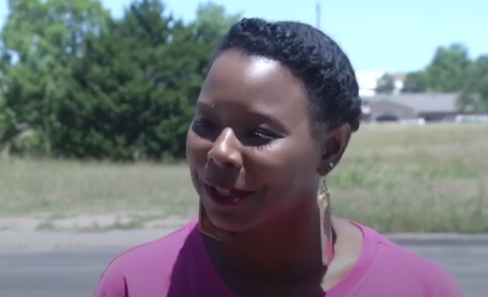
Oklahoma City Council Member Nikki Nice said plans for a new grocery store in this area have been 30 years in the making.
“When you look at the aspects of redlining and who actually owns property in your community that’s where the conversation kind of stops,” Nice told Fox 25 News. “I think that’s been for the most part the problem within our communities—all communities of color and underserved.”
Nice went on to discuss the urgent need for healthy options for residents living in the Northeast side of town.
“We have health outcomes that are less. The life expectancy is 18 years less [for those living in the 73111 zip code],” Nice said. “So we address that by giving people healthier options. Access includes making sure they have transportation needs met in order to get to that space to get those healthy options met.”
Addressing Food Deserts and The Lack of Healthy Options
According to a Salud America! Health Equity report card of Oklahoma County, 267,801 individuals living in 76 census tracts across the county are considered to be living in food deserts.
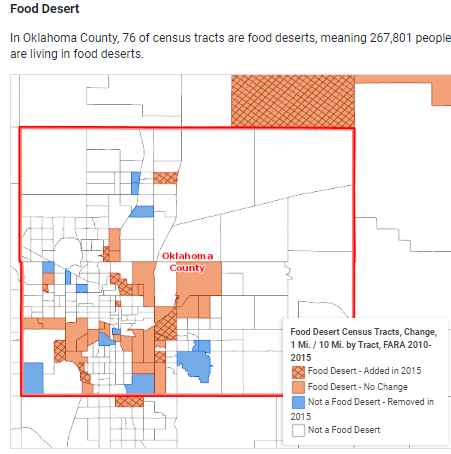
For an area to be classified as a food desert, 1 in 3 individuals or >500 individuals in a census tract must not have easy access to a supermarket. The area also must have a poverty rate of over 20%.
The USDA defines low access to a supermarket in urban areas as living >1 mile away from a grocery store and >10 miles away in rural communities.
A lack of transportation options makes it more difficult for those living in food deserts or food swamps to have access to healthy foods, but a grocery store can help change this.
“It’s a realm of different ways to meet that need for the communities to ensure we are bettering the health outcomes for 73111,” Nice told Fox 25 News.
The new Homeland store would fill the food access gap for those in the area with limited transportation options. It also would help boost the local economy and bring jobs.
“It’s important to have diverse communities and to make sure everyone is at the table when you have a need,” Nice said.
Jones plans to continue gathering input from the community.
The store will break ground in a few month. It is expected to open in fall 2021.
“It’s the start of a much longer process that I’m excited about,” Jones told KOCO news.
What Does Food Access Look Like in Your Community?
Having access to healthy food greatly shapes health outcomes.
Do you know what food access looks like in your community?
Find out by accessing a Salud America!‘ “Health Equity Report Card” for your area!
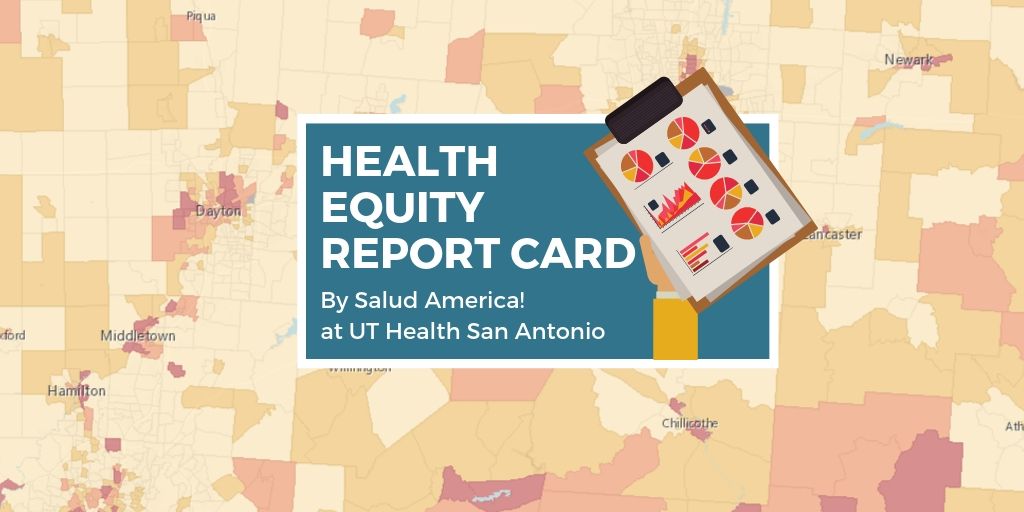 Select your county name and get a customized Health Equity Report Card by Salud America! at UT Health San Antonio. You will see how your area stacks up in food deserts, low food access areas, grocery store rate, fast food rate, and population receiving SNAP benefits, compared to the rest of your state and nation.
Select your county name and get a customized Health Equity Report Card by Salud America! at UT Health San Antonio. You will see how your area stacks up in food deserts, low food access areas, grocery store rate, fast food rate, and population receiving SNAP benefits, compared to the rest of your state and nation.
Be sure to email your Health Equity Report Card, share it on social media, and use it to make the case for community change and boost health equity in your area.
By The Numbers
1
Supermarket
for every Latino neighborhood, compared to 3 for every non-Latino neighborhood

